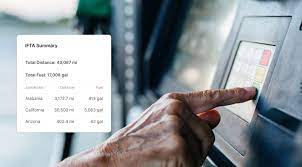The International Fuel Tax Agreement, or IFTA, is an agreement between the lower 48 states of the United States and the provinces of Canada on the reporting of fuel usage by motor carriers operating in its many member countries. Alaska, Hawaii, the District of Columbia, and other territories do not fall under any IFTA authority. This article will assist you in obtaining a more profound knowledge of IFTA and its potential effects on your fleet. From this site, you can know lots of useful information about IFTA tax services.
Fuel tax reporting prior to IFTA
Every time a commercial driver or carrier purchases motor gasoline, they are obligated to pay tax, which becomes more complicated when commercial vehicles traverse state boundaries or international borders. Before IFTA, individual states were responsible for administering gasoline tariffs between states and localities. The federal governments of the United States and Canada delegated local governments the responsibility of establishing reporting criteria and enforcing payment and collection of gasoline taxes, which proved inefficient and expensive to administer.
Before IFTA, truck drivers entering a new state were obliged to go to centers to get trip permits and gasoline taxes. The laws, procedures, and filing dates differed from state to state, necessitating fleet managers to devote substantial administrative time and resources to monitoring gasoline tax payments. More than two decades ago, the United States and Canadian governments collaborated in drafting an agreement establishing standard gasoline tax reporting procedures across borders.
What is an IFTA sticker, and how does it function?
Designed to facilitate the cross-border payment of gasoline taxes, IFTA is enforced throughout the 48 contiguous states and all Canadian provinces. Qualified motor vehicles with a gross vehicle weight (GVW) of at least 26,000 pounds, three or more axles, or both must conform, as well as trucks used to carry commercial commodities over state boundaries or the United States/Canadian border.
To comply with IFTA, IFTA carriers must first register with the International Registration Plan (IRP). All trucks will be issued IFTA stickers with yearly expiration dates that must be displayed to avoid penalties. Under IFTA, carriers are only obliged to disclose fuel use to their home state, as opposed to each state in which they operate. Consequently, the basic state is accountable for the following:
- Processing the quarterly IFTA tax return for the carrier.
- Collecting from or reimbursing the carrier a net fuel usage tax that represents taxes owing to or from all states where the carrier operates.
- Distributing to or receiving from other states the amount of fuel usage tax owed by the transporter.
- Auditing the transporter on behalf of all IFTA member states.
- (SC State Capitol)
IFTA guarantees that each state or province in Canada gets the correct gasoline tax income and reduces the administrative burden on carriers. Utilize our free Fleet Management Buyer’s Guide to choose the best option for your company.
How to prepare IFTA filings
One analysis indicates that IFTA reduces yearly corporate administrative expenses by millions of dollars. Therefore, accurate IFTA reporting is vital for cost savings and compliance. Carriers are accountable for the following to fulfill IFTA reporting:
Obtaining an IFTA license in your major jurisdiction by completing a form with your registered business name, primary postal address, federal business number, and USDOT number.
Once your application is granted, you will get decals and a license that must be kept in the vehicle at all times.
Document all miles traveled, gasoline bought, and fuel tax paid in each jurisdiction.
Quarterly, submit IFTA data to your home state or authority.
After submitting your quarterly tax return, you will either be required to pay taxes owing or get a refund.
Your home state or province collects reports and payments from other states or provinces.
Quarterly IFTA fuel tax reports must be filed, and fleet managers must provide the Department of Transportation (DOT) access to these reports at any time.
Even though IFTA has been shown to assist fleet managers and drivers increase operational efficiency, some solutions can make IFTA reporting and compliance easier.
How to cut expenses?
Reducing gasoline use is one method for lowering total fuel expenditures, including taxes. Using GPS monitoring, you may optimize your drivers’ itineraries from Point A to Point B to maximize fuel economy. Software for managing driver behavior may assist in coaching safer driving practices that improve fuel economies, such as lowering sharp acceleration, severe braking, and idle time. Accurate GPS monitoring data lets you see MPG and other efficiency metrics for a complete fleet or a single car. Determine the reasons for excessive gasoline usage, fuel loss, and fuel theft, and implement driving practices that reduce fuel expenditures.

































